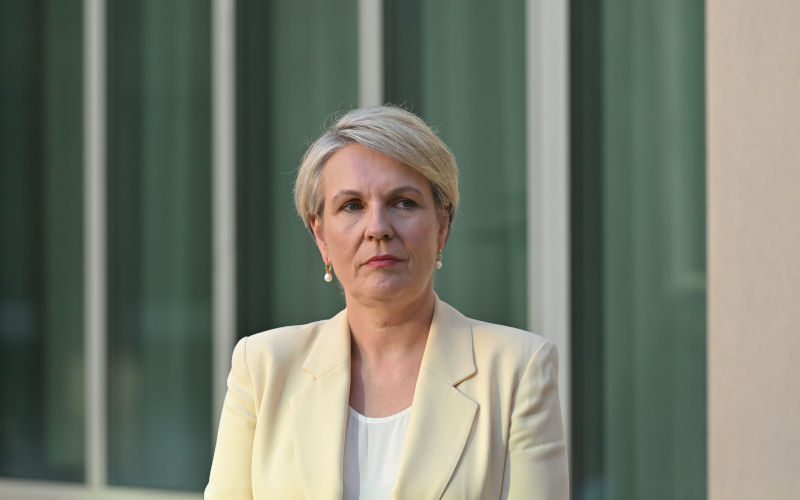The Environment Council of Central Queensland (ECoCeQ) has been in the Federal Court this week arguing that the Environment Minister, Tanya Plibersek has acted irrationally and unlawfully in her risk assessment of the expansion of 2 very large coal mines in NSW. The proponents of these mines, the Mount Pleasant Optimisation coal mine expansion and the Narrabri Underground Mine Stage 3 Extension, joined the court case to also defend the Minister’s decisions.
The federal Environment Protection and Biodiversity Conservation (EPBC) Act has a list of places, plants and animals, collectively called Matters of National Environmental Significance (MNES), that the Environment Minister is required to protect whenever she considers whether a proposal, including new coal and gas projects, can proceed. What we call our Living Wonders includes ecosystems from Kakadu to the Tarkine, from Ningaloo Reef to the Great Barrier Reef and all our iconic threatened and endangered species in between. To date, none of our Environment Ministers have considered the harms from climate change when deciding to approve new fossil fuels, though it is clear that these harms are the greatest threat to our Living Wonders through the effects of drought, fire and flood, and marine heatwaves that cause coral bleaching.
As an example, habitat destruction from a fire system in 2019-2020 in NSW caused destruction of 5 million hectares of habitat, with loss of nearly 3 billion animals that died in the fires, including 143 million mammals, 2.46 billion reptiles, 180 million birds, and 51 million frogs. Sudden, severe and catastrophic loss of entire habitats and populations from events such as this greatly reduces the ability of many of these animal species to recover.
These Black Summer fires caused extraordinary human suffering, with loss of 3,000 properties and 34 deaths. This week, in early Spring, we have already had 57 fires burning across Tasmania, NSW and Queensland. On Tuesday, more than 20 schools on the Far South Coast of New South Wales closed in response to a Catastrophic Fire Danger rating and a total fire ban was declared for the region.
Last year, Lawyers from Environmental Justice Australia assembled on ECoCeQ’s behalf an enormous dossier of scientific evidence, detailing over 2,000 different species that are threatened by climate change, and we presented these to the Minister more than a year ago and asked her to re-consider various coal and gas proposals that had not yet reached the approval stage. Among these were the proposed Narrabri and Mt Pleasant mine extensions.
In May 2023, the Minister decided the climate harms identified in thousands of pages of evidence put before her should not change the risk assessment carried out by the previous government for the particular mines. This conclusion was more staggering to us, given the Minister also accepted the extraction of fossil fuels contributes to climate change and accepted our analysis about the devastating effects of climate change on Matters of National Environmental Significance right across the Australian environment.
When the Minister decided to allow these coal expansions to proceed towards the approvals stage without their climate impacts being properly considered our small volunteer group decided that we could not be bystanders and determined to test the legality of these decisions in the Federal Court. We did not want to go to court – it is a risky and expensive undertaking, but we felt we had no option because the Minister failed to act on the law and the science.
In court, the Minister and proponents’ defended the Minister’s reliance on ‘substitution reasoning’ to justify the conclusion that each of these coal mines would have no relevant impact. We call this the drug dealer’s defence – in essence, this dangerous and flawed logic implies that ‘if we don’t sell this product, then someone else will.’ They argued that if these two projects do not go ahead, other companies will dig up and sell an equivalent amount of coal and there will not be a ‘net increase’ in global greenhouse gas emissions. The Minister’s lawyer noted that while the Act “deals with matters of national environmental significance for actions that are a substantial cause of harm to matters of national environmental significance, the Act was not sculpted for or designed for a matter where the driver is a historic rise in the amount of carbon dioxide by – at a global level – by a million different causes in which each individual source is relatively small’ We argued before the Court that this argument is inconsistent with documented scientific evidence that burning coal is the single largest source of global temperature rise, and therefore that she didn’t do her job under the law.
As part of our case, we also argued that the Minister and proponents’ position contains no acknowledgement that coal is creating global climate harm, and that what the countries buying the coal really want is energy. They failed to acknowledge that there are other ways to provide energy that are cheaper and that don’t cost the earth. They failed to consider an alternative to coal.
Our Barrister Mr Nekvapil referred to the enormous trove of scientific information available to the Minister, including various scenarios in the recent IPCC Sixth Assessment Report, and argued that her decisions were irrational because she did not consider a future that could be better without the new coal proposals than a future with them.
Mr Nekvapil argued that Minister didn’t properly apply the ‘precautionary principle’. The precautionary principle is a key concept in federal environment law, which says that a ‘lack of full scientific certainty should not be used as a reason for postponing a measure to prevent degradation of the environment when there are threats of serious or irreversible environmental damage’.
He argued that although the Minister accepted that she was required to take the precautionary principle into account, she was not properly guided by it when she made findings about the impacts the mines could have on the species and places protected by the law.
It was a significant step to bring these cases and argue that the Minister made key legal errors when she refused to accept the serious and irreversible climate harm these new coal projects are likely to cause. But we feel like it is a step we had to take for our Living Wonders, and for all of us.
We now await the Court’s judgment, but if we are successful, we hope these cases will transform how Australia’s Environment Ministers now and into the future assess climate risk – so the climate harm of every new coal or gas mine can never be ignored again.

Christine Carlisle
Christine Carlisle lived for over 40 years in Mackay, a Central Queensland coastal town that is a central commercial and population hub for both the Great Barrier Reef and the coal mines in the BowenBasin and Galilee Basin. She has been engaged in environmental and social issues since the 1980’s and is a founding member of the Environment Council of Central Queensland. The group is purely volunteer, and members are active in the wider environmental movement in Australia. Christine believes that the climate and biodiversity crises that we are responsible for, pose the greatest challenge to our existence that humanity has ever faced.
